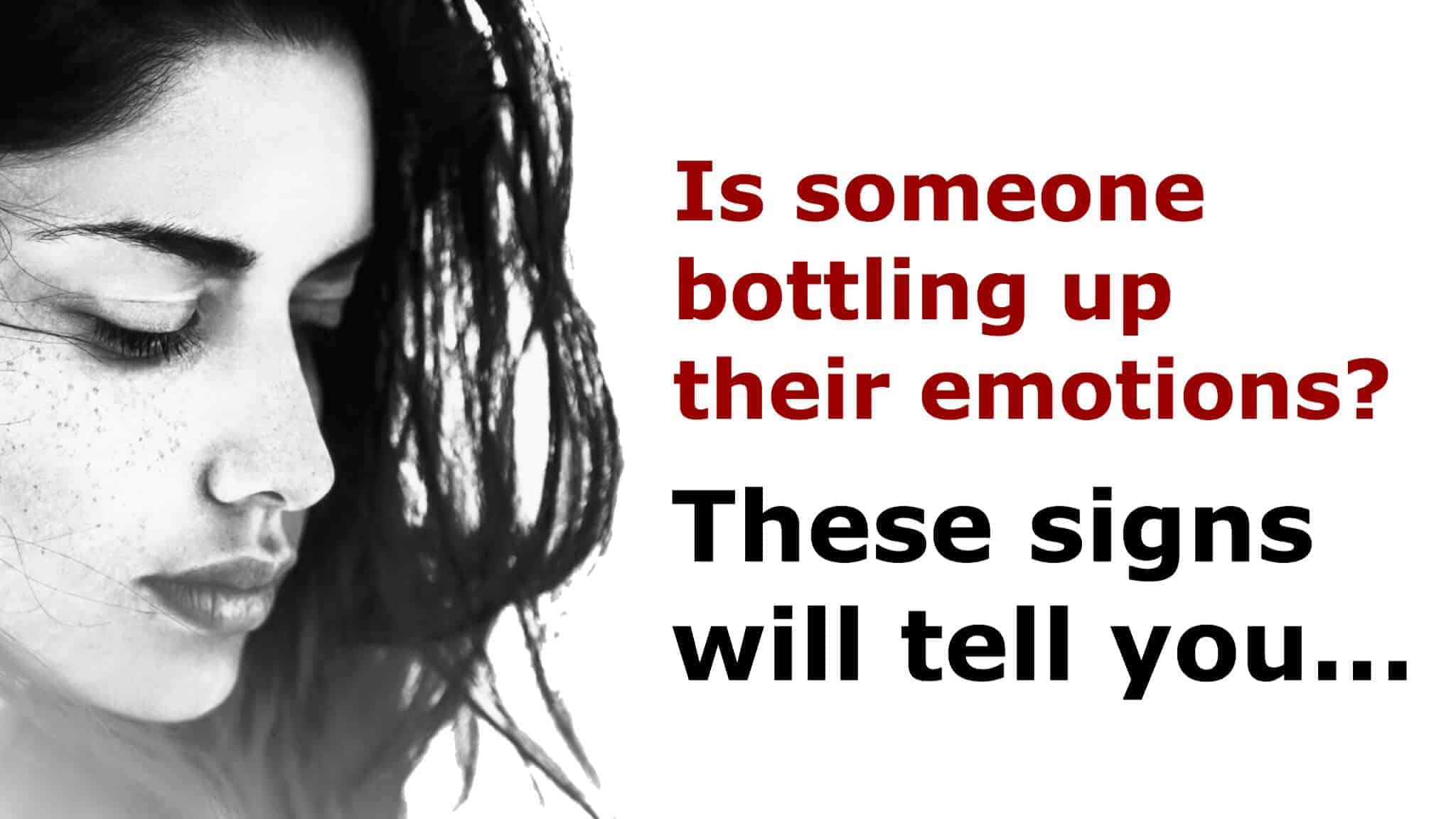The Oxford dictionary’s definition of “to bottle something up” is: “Repress or conceal feelings over time.”…So how do you know whether someone is doing just that with their emotions?
Here are nine signs to look out for that shows someone is suppressing their emotions:
1) Having an attitude reveals bottled emotions.
Getting stroppy is a temporary release from what is going on inside. It is the result of something eating away at the person in question because they are attaching happiness to a particular outcome and did not get it. Maybe the person they like completely humiliated them and the pain is bubbling away in secret. Maybe someone else at work got the credit for work they did. It is nothing more than a coping mechanism to prevent a full blow-out.
2) Feeling alone.
Their Saturday night consists of watching the whole series of X-Files by themselves, as they feel like their emotions are alien to everyone else that they even ignore calls from friends. If you believe this is the case, get Agents Mulder and Scully knocking on their door pronto. The truth is out there!
3) The silent treatment.
They say that silence is deafening. For someone bottling up their emotions, it is a cry for help, a silent one at that! It is another coping mechanism to keep things inside and for the person to “keep it together”. It can also be used as a way to let someone know you are not happy with them.
4) Distractions may signify bottled emotions.
Keep reading, my friend! These may come in many forms, such as people, events, games, sex, and so on. These are used to deter the person doing the suppressing from potentially reacting faster and more destructively than Chernobyl and Fukushima combined. Anything that can help take the edge off is fair game. However, such distractions are merely a temporary solution to a lingering problem.
5) Avoidance.
This is avoiding the cause that brings negative emotions. Triggers can include people, objects, places, events that ended badly, and others. This, like the last sign, is a way for the person to not face their demons.
6) Hitting the bottle.
Drink and/or substance abuse is yet another coping mechanism which is very common. The spectrum of substances ranges from alcohol to heroin to “legal highs”. This, as you are probably aware, can lead to dependency, possible disease or even death. Again, these “solutions” are only a temporary measure.
7) Bad memory can come with bottled emotions.
As the sufferer concentrates more and more on how to deal with the suppression, they tend to be more forgetful and less able to recognise social cues within a particular setting. This leads to a lack of communication, and a distinct decline in relationship satisfaction with everyone, most of all a romantic partner.
8) Weight gain.
Cortisol, the “stress hormone”, is released into the body to recover from two others, namely adrenaline and corticotropin releasing hormone, which brings about short-term loss of appetite. After the other two hormones disappear, cortisol lingers and appetite returns, making you eat more. It can also be stored as “visceral fat” in the abdomen. If this continues, the suppression turns into stress, which can onset weight gain.
9) Deterioration of gut health.
As the brain and the gastrointestinal tract are interchangeable, with the gut being known as “the second brain”, this can cause physical symptoms in that particular area. These symptoms include: an upset stomach, bloating, diarrhea, and nausea.
The truth of the matter is that it will come out sooner or later. You can either decide to let it go or your overpowering emotions will do it for you.
Have you got the bottle to let it out in time?




















